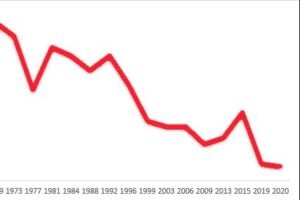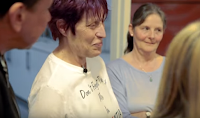ALZHEIMER’S STATISTICS VIDEO & ARTICLE:
Researchers need our support. CDC estimates the U.S. burden of dementia will double by 2060. They say early diagnosis is key to helping people and their families cope. See the CDC’s new stats on Alzheimer’s.
The U.S. burden of Alzheimer’s disease and related dementias (ADRD) will double by 2060, according to a new study from the Centers for Disease Control and Prevention.
The study, published online in Alzheimer’s & Dementia: The Journal of the Alzheimer’s Association, is the first to forecast Alzheimer’s disease by race and ethnicity.
CDC researchers predict that Hispanic Americans will have the largest projected increase due to population growth over the projection period, although because of the relative size of the population, non-Hispanic whites will still have the largest total number of Alzheimer’s cases.
The burden of Alzheimer’s disease and related dementias in 2014 was 5 million people, which is 1.6 percent of the U.S. population in 2014—319 million people. This burden is projected to grow to 13.9 million, nearly 3.3 percent of the population in 2060–417 million people.
From 1.6% to 3.3%
Early diagnosis is key to helping people and their families cope with loss of memory, navigate the health care system, and plan for their care in the future.“This study shows that as the U.S. population increases, the number of people affected by Alzheimer’s disease and related dementias will rise, especially among minority populations,” said CDC Director Robert R. Redfield, M.D. “Early diagnosis is key to helping people and their families cope with loss of memory, navigate the health care system, and plan for their care in the future.”
Racial Disparities
Alzheimer’s disease is the fifth most common cause of death for Americans ages 65 years and older. It is an irreversible, progressive brain disorder that slowly destroys memory and, eventually, a person’s ability to perform even the simplest tasks, such as bathing, feeding, and dressing.
CDC researchers estimated the number of people with Alzheimer’s by age, sex, race and ethnicity in 2014 and 2060 based on population projections from the U.S. Census Bureau and percentages of Medicare Fee-for-Service beneficiaries ages 65 years and older with Alzheimer’s disease and related dementias from the Centers for Medicare & Medicaid Services.
Among people ages 65 and older, African Americans have the highest prevalence of Alzheimer’s disease and related dementias (13.8 percent), followed by Hispanics (12.2 percent), and non-Hispanic whites (10.3 percent), American Indian and Alaska Natives (9.1 percent), and Asian and Pacific Islanders (8.4 percent).
By 2060, the researchers estimate there will be 3.2 million Hispanics and 2.2 million African Americans with Alzheimer’s disease and related dementias. The increases are a result of fewer people dying from other chronic diseases and surviving into older adulthood when the risk for Alzheimer’s disease and related dementias increases.
Alzheimer’s Caregivers Need Support
The report also addresses the need to provide support to caregivers of persons living with Alzheimer’s and related dementias because an early diagnosis can help caregivers plan for the life-changing experience of caring for a friend or family member with these conditions, which can also impact the caregiver’s health and well-being.
“It is important for people who think their daily lives are impacted by memory loss to discuss these concerns with a health care provider. An early assessment and diagnosis is key to planning for their health care needs, including long-term services and supports, as the disease progresses,” said Kevin Matthews, Ph.D., health geographer and lead author of the study with the CDC’s Division of Population Health within the National Center for Chronic Disease Prevention and Health Promotion.
CDC works to understand and improve the lives of people with Alzheimer’s and related dementias, and their families, by:
- Collecting, analyzing, and disseminating data on cognitive decline and caregiving to guide public health action.
- Promoting awareness of Alzheimer’s disease and other dementias, including the importance of early assessment and diagnosis.
- Collaborating with partners to develop, promote, and disseminate effective strategies to train health care workers about early signs of dementia despite cultural differences.
For more information on CDC’s activities related to Alzheimer’s disease and the Healthy Brain Initiative, visit:
For more information on the National Plans to Address Alzheimer’s Disease, visit:
U.S. DEPARTMENT OF HEALTH AND HUMAN SERVICES











